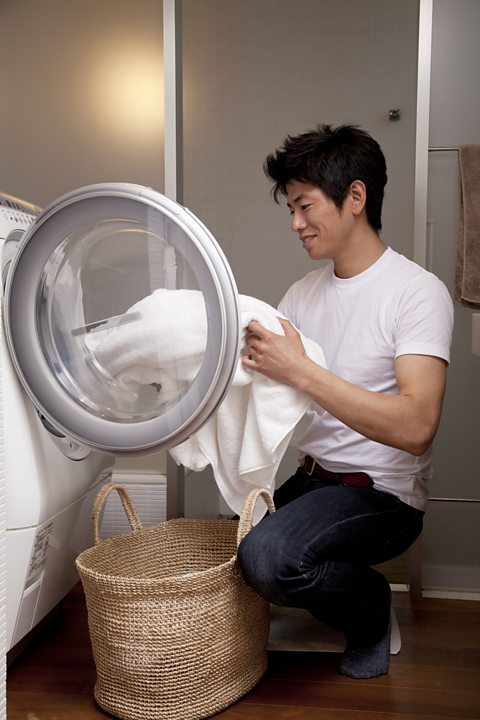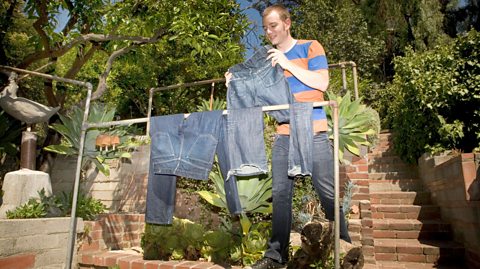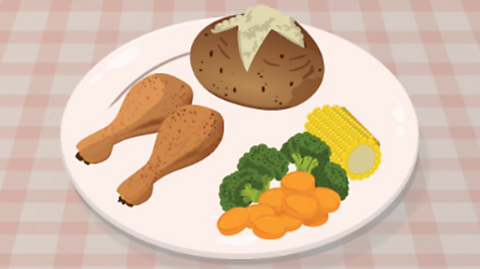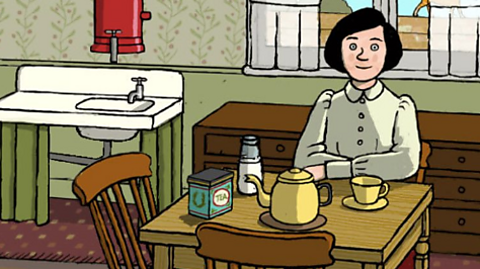Good hygiene is good news. Nobody wants to smell like they haven’t washed for a fortnight or have a house teeming with dubious germs.
But can we be too hygienic? This guide offers advice on how often to give the important things in your life a decent scrub. You may find you’re reaching for the soap too regularly for your own good.
How often should you shower?
There’s no hard and fast rule for this although dermatologists agree that as a society, we shower too often.
Many of us do this daily, however, if you’re not doing anything too strenuous, you can shower every other day, not smell offensive and ensure your skin retains those vital oils that too much washing depletes.

All skin is different though and if, for example, you exercise every day, it’s important to shower after each workout or you may start to pong in polite company.
Feet are the exception here. Experts recommend washing your feet with mild soap (especially between the toes) every day and drying them thoroughly afterwards.
Washing your hair
Like your skin, your hair contains essential oils you don’t want to lose through excessive scrubbing.
Hair experts are agreed that unless your scalp gets greasy quickly, there is no need to wash it every day. Every third day is a good routine to follow, so you could save a bit on shampoo and conditioner at the same time.
Not all hair is the same, however, and the advice on how often it should be washed changes from hair type to hair type. For example, curly hair is drier than straight hair, and experts recommend washing it once a week, or even once a fortnight, with thicker curls requiring less frequent washing. Afro hair is very dry and expert advice on washing it varies, although a general suggestion is between once a week and once a fortnight - once a month in some cases – to prevent it from breaking.

Brushing your teeth
The rules we grew up with still apply. The NHS recommends brushing with fluoride toothpaste for two minutes twice a day to help combat plaque and gum disease.
Don’t have a clock by the sink to time those two minutes? Plug your earphones in and polish those gnashers for the duration of Blur’s Song 2. At two minutes and two seconds long, it’s (almost) tailor made for the job - and loads more fun.

Changing your sheets
We spend around a third of our life in bed so make sure you’re snoozing in a healthy environment.
Health experts recommend pulling back the duvet each morning. Sheets are full of moisture from our bodies, as well as dead skin cells and can attract dust mites which aren’t brilliant for anyone with allergies. Those sheets need to 'breathe' so open a window as well if you can.
The Good Housekeeping Institute recommends changing your sheets at least once every two weeks, although if you sweat a lot while you sleep, make it once a week.

Washing towels
A lot of dead skin cells transfer from body to bath towel when we dry ourselves - the kind bacteria love to feast upon. It’s not ecologically sound to wash towels after every use but they should be allowed to dry thoroughly before going back into service.
The Good Housekeeping Insitute suggests three uses is usually enough before towels need a wash. Make sure you wash them on a high temperature to kill off the bacteria that has built up between the threads.
Replacing your dishcloth
If your dishcloth goes from the washing-up bowl to wiping the work surfaces then it’s picking up a lot of bacteria which will thrive within those moist fibres.
Advice differs on how often we should replace these cloths but part of a discussion on the MumsNet website suggests changing them daily then washing a week’s worth in one go. The same discussion suggests soaking a dishcloth in disinfectant overnight.

The toilet bowl
Surprisingly, the chopping board in your kitchen probably contains more bacteria than your toilet bowl but you still need to keep those germs in your loo in check.
Clean around the bowl once a week and keep things fresh by giving the seat a daily wipe with a soapy cloth.
Keeping jeans clean
There are differing schools of thought on this.

One is that jeans should be washed as little as possible (one high-ranking employee of a major denim manufacturer admits to washing theirs once every six months) but on the less extreme side is the policy of popping them in the machine after every four or five wears. It’s also better to wash your denims in cold water to preserve the dye.
Pets' food bowls
We wouldn’t serve our granny dinner on a dirty plate and our furry friends should be treated in the same way. No matter how icky it can be to scrape uneaten dog or cat food into the bin, our four-legged pals deserve their dinner in a clean bowl. Wash them with hot, soapy water after each meal.
Water bowls can be left a little longer before cleaning but they should still be washed every other day. And make sure you wash your hands thoroughly before and after handling your pet’s food.
Kids’ pyjamas
Parental online discussion groups have lengthy debates about this one. All families are different, as are their routines, so while it may be easier for some to wash pyjamas every day, others leave it for a week, or even until they’re just too dirty to wear.
However, Good Housekeeping magazine suggests that like all other children’s clothes, pyjamas can be worn on multiple occasions before they head for the laundry basket and it’s only if they’re particularly stained or smelly that they go in the wash ahead of schedule.
While it’s important to save water and prevent our skin from drying out, the advice given above is just that. There are no hard and fast rules to washing and much of it depends on personal preference and circumstance. As long as you don’t smell like a drain on the bus into town each morning, you’re probably doing fine.
This article was published in March 2019 and last updated in January 2022
How to stay healthy
What we need to do to look after ourselves.

The water cycle
Where do we get our wet stuff from?

Homes of 100 years ago
How we lived in the early 20th century.
